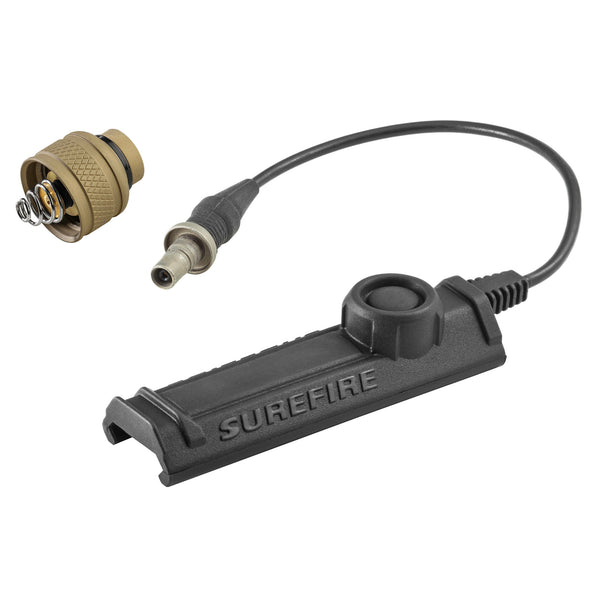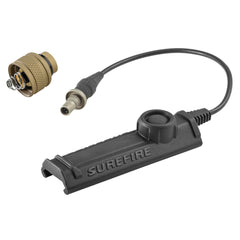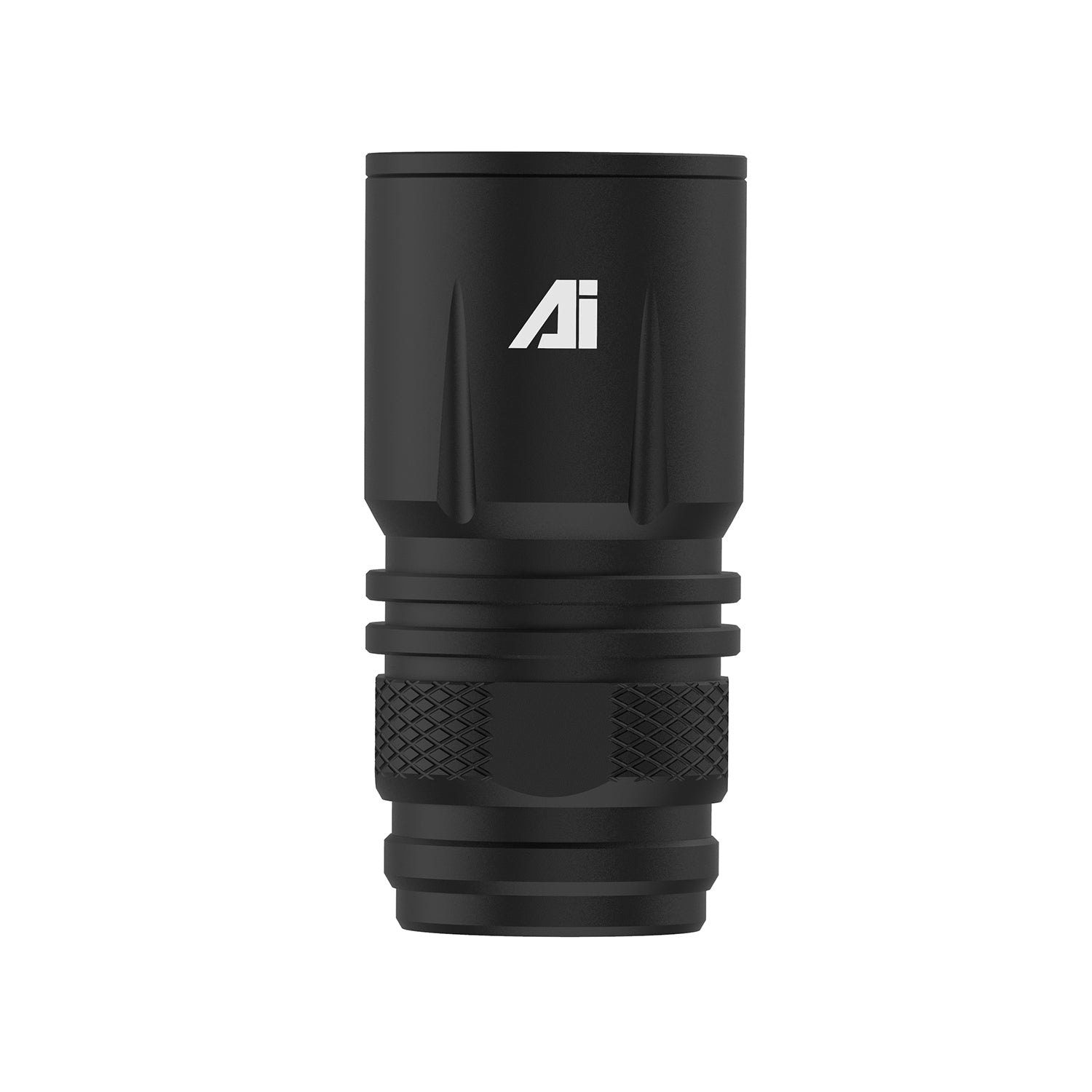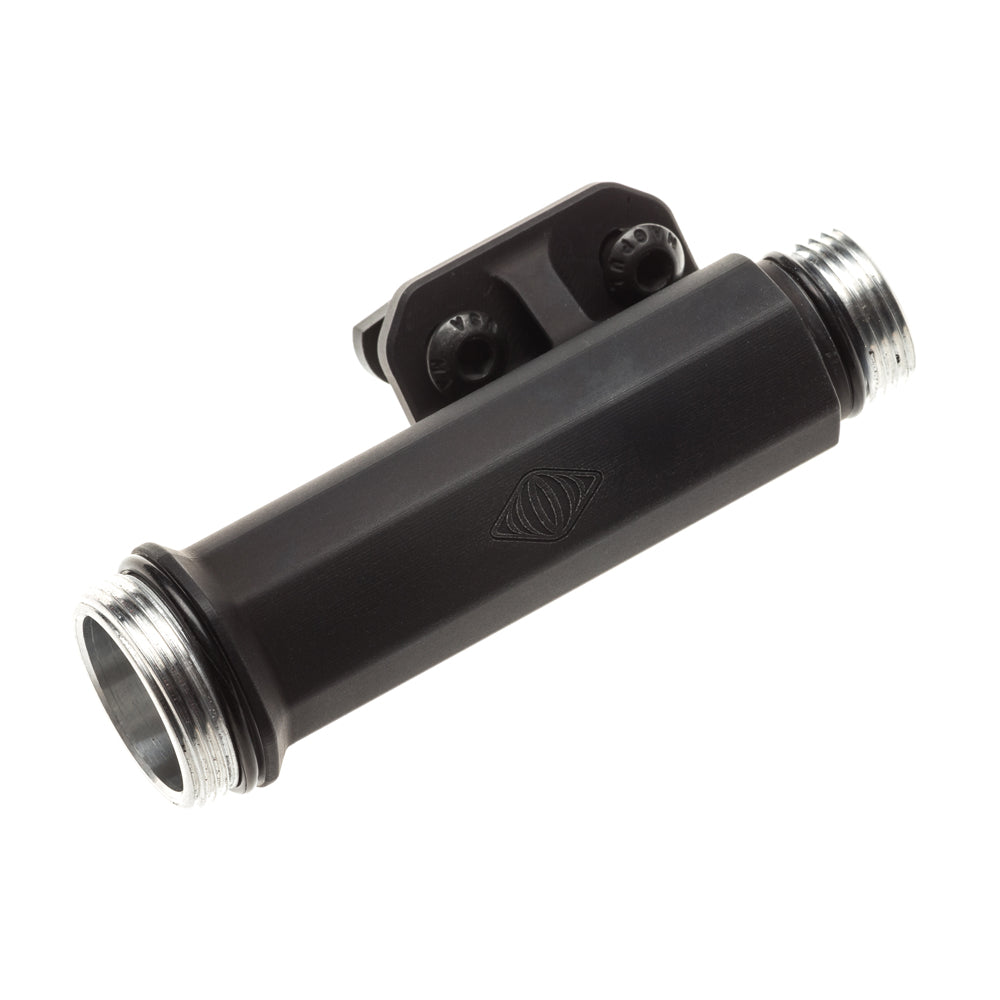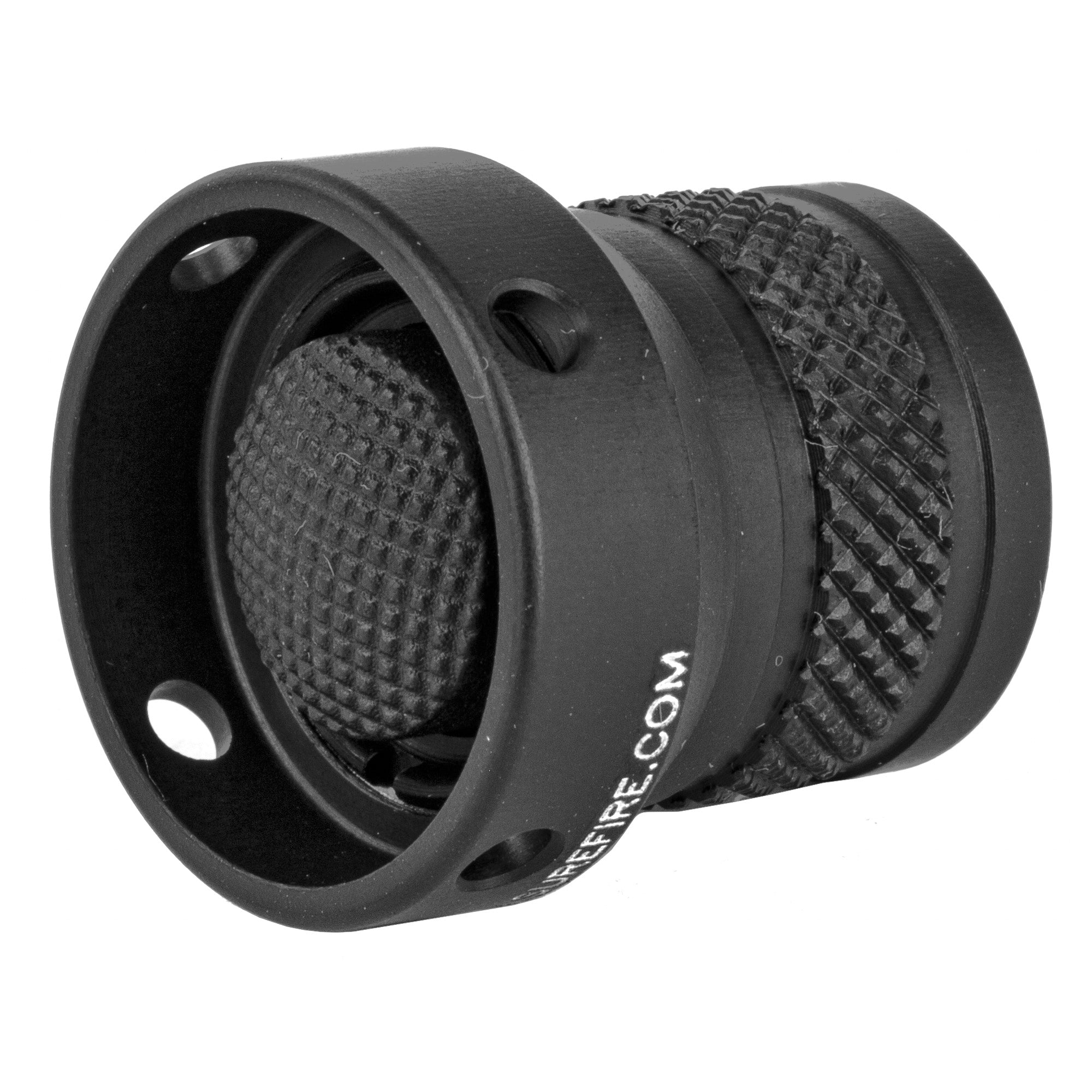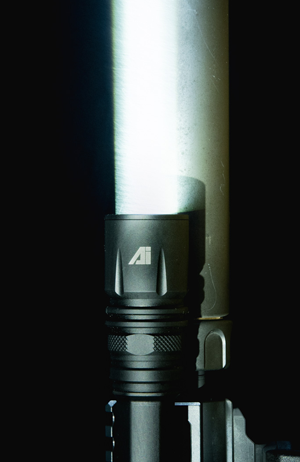SureFire SR07-TN Tape Switch, 7" Cable
The SR Remote Dual Switch provides remote activation for any SureFire Weapon Light with a switch socket. Two switches-a momentary-on pressure pad switch and a constant-on pushbutton switch-are integrated with a Snap-On clamp for easy attachment to your firearm's Picatinny rail forend. The SR07 has a 7-inch cable which works...
$145.00
The SR Remote Dual Switch provides remote activation for any SureFire Weapon Light with a switch socket. Two switches-a momentary-on pressure pad switch and a constant-on pushbutton switch-are integrated with a Snap-On clamp for easy attachment to your firearm's Picatinny rail forend. The SR07 has a 7-inch cable which works with most rifle/carbine applications. Fits: Millennium Universal, Classic Universal, Scout Light with socketed tail cap, and X200, X300, and X400 with XT tail cap.
|
FEATURES: |
| Includes Surefire UE-TN Tail Cap |
| Dual Switch for Momentary and Constant modes |
| Switch platform clips to Picatinny rail |
| Weatherproof switches and plug |

What is Proposition 65?
- Proposition 65 requires businesses to provide warnings to Californians about significant exposures to chemicals that cause cancer, birth defects or other reproductive harm. These chemicals can be in the products that Californians purchase, in their homes or workplaces, or that are released into the environment. By requiring that this information be provided, Proposition 65 enables Californians to make informed decisions about their exposures to these chemicals.
- Proposition 65 also prohibits California businesses from knowingly discharging significant amounts of listed chemicals into sources of drinking water.
- Proposition 65 requires California to publish a list of chemicals known to cause cancer, birth defects or other reproductive harm. This list, which must be updated at least once a year, has grown to include approximately 900 chemicals since it was first published in 1987.
- Proposition 65 became law in November 1986, when California voters approved it by a 63-37 percent margin. The official name of Proposition 65 is the Safe Drinking Water and Toxic Enforcement Act of 1986.
What types of chemicals are on the Proposition 65 list?
The list contains a wide range of naturally occurring and synthetic chemicals that include additives or ingredients in pesticides, common household products, food, drugs, dyes, or solvents. Listed chemicals may also be used in manufacturing and construction, or they may be byproducts of chemical processes, such as motor vehicle exhaust.
What does a warning mean?
If a warning is placed on a product label or posted or distributed at a workplace, a business, or in rental housing, the business issuing the warning is aware or believes that it is exposing individuals to one or more listed chemicals.
By law, a warning must be given for listed chemicals unless the exposure is low enough to pose no significant risk of cancer or is significantly below levels observed to cause birth defects or other reproductive harm.
What does the phrase “known to the State of California to cause [cancer] [birth defects or other reproductive harm]” in a Proposition 65 warning actually mean?
Under the Proposition 65 statute, “known to the state to cause [cancer] [birth defects or other reproductive harm]” means the chemical has been added to the Proposition 65 list by one of four listing mechanisms.
Who administers Proposition 65?
The Office of Environmental Health Hazard Assessment (OEHHA) administers the Proposition 65 program. OEHHA, which is part of the California Environmental Protection Agency (CalEPA), determines in many cases whether chemicals meet the scientific and legal requirements for placement on the Proposition 65 list, and administers regulations that govern warnings and other aspects of Proposition 65.
Who enforces Proposition 65?
The California Attorney General's Office enforces Proposition 65. Any district attorney or city attorney (for cities whose population exceeds 750,000) may also enforce Proposition 65. In addition, any individual acting in the public interest may enforce Proposition 65 by filing a lawsuit against a business alleged to be in violation of this law.
Lawsuits have been filed by the Attorney General's Office, district attorneys, consumer advocacy groups, and private citizens and law firms.

